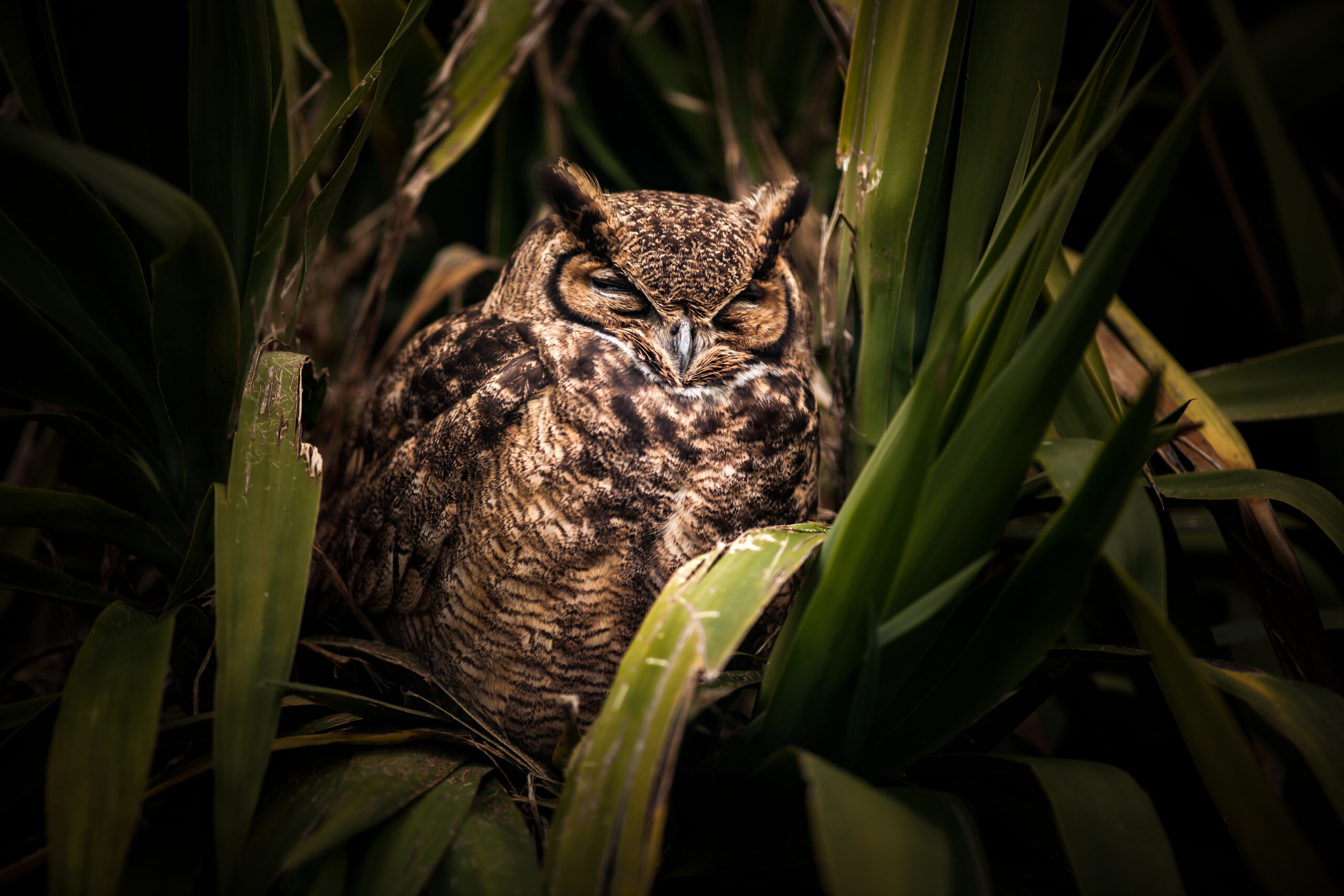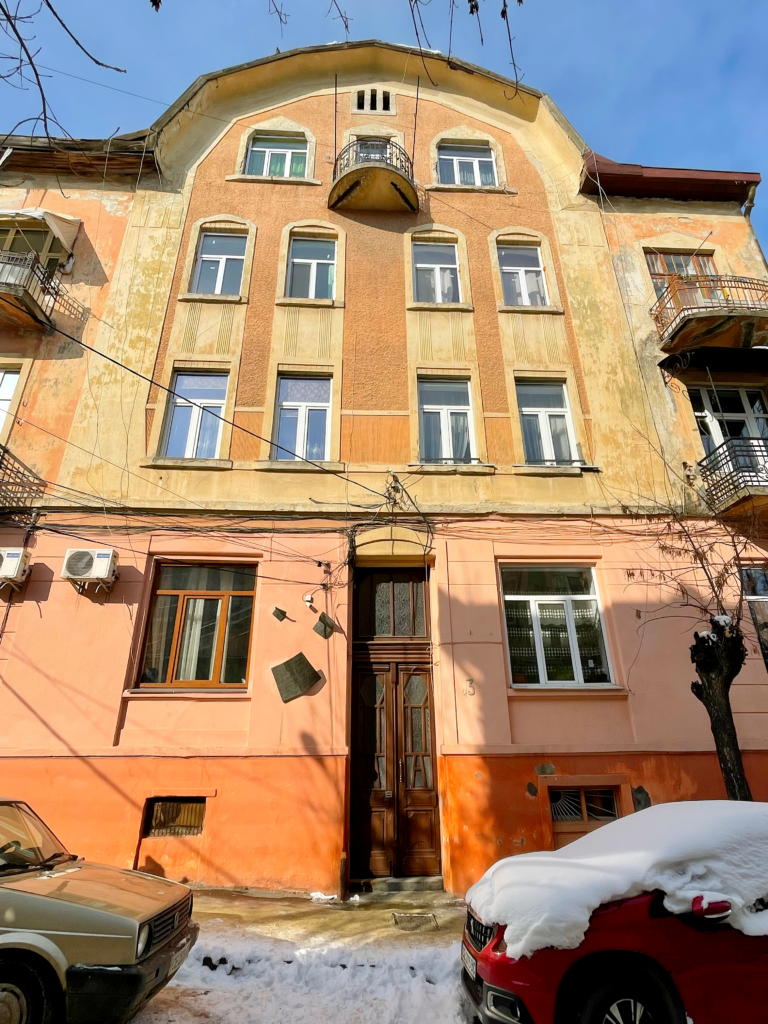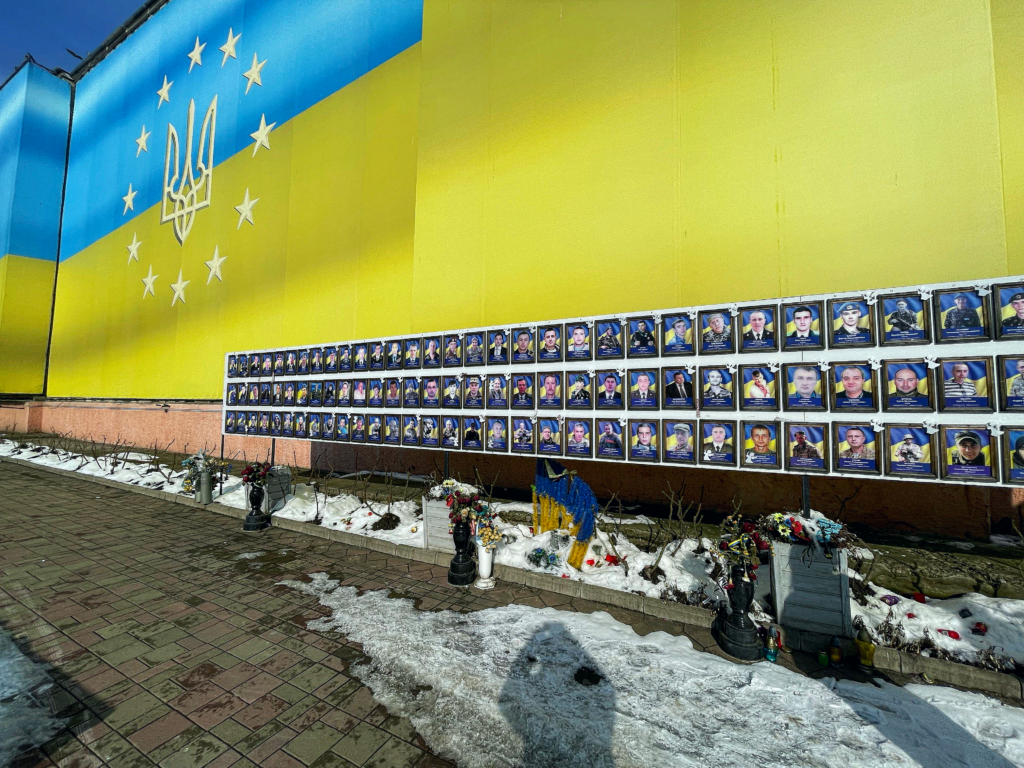
War
The War God
To me, Yura looks like a typical Ukrainian. Light blonde hair, wide shoulders, a strong beard, huge hands and deep trusting brown eyes. Yura is straightforward. He says what he thinks and thinks what he says.
Yura, so goes my belief, will not wrong you.
He drives like a madman. Easily, he races with 120-140 km/h past long trucks and antiquated and slow Soviet Radas on Ukrainian country roads on the opposite side of the road. Clearly, I can see the lights of the other cars coming directly towards us, coming closer and closer with every millisecond that passes. But I’m not afraid. I trust Yura. I must. I must let him do what he seems to do best. My translator, Oksana, also a Ukrainian, is awfully afraid. Every time Yura accelerates she holds on to her seat or whatever she can grab.
I can’t bear this, she tells me.
Then, she looks to her right, out of the window, because she can’t face what happens right in front of her. I smile quietly and keep looking into the blinding lights coming right at us.
When the war broke out in Ukraine in February 2022, I was shocked. For two years I had been researching on war, but never had it occurred to me that Russia would invade Ukraine. More than shocked, I felt embarrassed. Not only because researchers are supposed to know at least to some extent what the future may bring – even though war remains a business of uncertainty, as Clausewitz would say –, but also because I completely underestimated the conflict between Ukraine and Russia since the Maidan Revolution. Western European conceitedness. I thought that I owed something to Ukraine. I could not just be a by-stander. Donating some money, debating, and arguing about it simply wasn’t enough. I needed to be an active participant.
But how could I participate? Enlist in Ukraine’s foreign legion and fight? Not even I could take that thought seriously. Ridiculous.
You’d be more of a burden to the Ukrainians than help, a friend of mine told me, who was a high-ranked officer in the US Army and a West Point graduate.
He was right. But how could I help?
Why don’t you write about it? That’s a skill you have. Use it!
True. He was right. I could indeed write about the war. Go back to my journalistic roots. Take a break from the academic ivory tower.
It was settled then. I would start writing about the conflict in any possible manner I could. But not from a distance. No armchair journalism.
I planned my trip to Ukraine and that’s how I met Yura. And Alla.
Both of them took care of me, planned my trip and arranged all interview partners for me. They both work for a Christian non-profit organization, that helps women in any possible way: pregnancy, abortion, depression, you name it. I interviewed their female clients to tell their stories and what they experienced during the last year under Russian attack and occupation.
Ilona has five children to take care of and had to leave her in-laws, who are still living under Russian occupation. Natascha’s two brothers are fighting at the front, and so is her father – who meanwhile, I heard from Alla, is in a hospital in Zaporizhzhia. Anastasia and Julia fled from the East, left everything behind – destructed house, relatives, family photo albums – but can’t wait to go back home. And Katja had a miscarriage while desperately waiting for her fighting husband to give some sign of life from the front.
At some point, during the interviews, when the context was right, I always asked the same question: Do you think that you are fighting here, even though the real fighting and battling is in the East at the front. All of them answered at least by nodding their head. Yes.
They all struggle in their very own way.
During the first two days of my stay, I also had to struggle in my very own way: namely, with myself. For lack of being able to assess the situation, I kept asking myself:
Why did you have to go to Ukraine? Why? Why didn’t I stay at home, in safe Switzerland, in my nice flat that I just moved into? Did I really have to play a part in this war? Did I really need to participate? What if the Russians start their big offensive everybody speaks of? What if I get hit by a bomb? I was in the West of the country, in Lviv, Khmelnytskyi and Chernivtsi, and therefore pretty safe, but still, it could happen, I thought. In war you never know, as Clausewitz lectures.
Then I witnessed my first countrywide air alert. I woke up at 9am to a loud and alarming sound coming from my phone and from the streets. I was actually prepared for this. My bag was always packed so that it would take me max 2 minutes to get out of my room. My friends who had been to Ukraine before had prepared me for such an event. Yura and Alla told me that the bombings in the West of the country usually hit energy infrastructure and rarely civilians. I knew all this, but nevertheless, too many ifs and probabilities for my taste. So, I went down to the reception to check what was going on.
As I went down and approached the desk, the receptionist said anticipating:
Breakfast on the first floor.
I looked at her smiling.
No, no, what about the air alert?
Oh, don’t worry, she waves with her hand, laughing.
This is when I knew that everything was alright, so I went back to my room and fell asleep. In the afternoon, the air alert still active, we did some sightseeing in Chernivtsi. I was pretty relaxed and did not think about the air alert at all. The highlight was Paul Celan’s birth house.

Later that day I had two more interviews and after that, I was done. Exhausted.
Then, suddenly, I get a message from a relative saying that I should leave Ukraine immediately, because the Russians have bombed the West of the country. I knew all that, obviously, I was there, but nevertheless, the message freaked me out a little. Did my relative know something I didn’t? I checked all Telegram channels and news websites I knew of in order to assess if the Russians had been bombing more than usual or if their offensive was starting that everybody kept talking about.
None of this. Nothing. Niente.
I found out that the bombs went down amongst others in Lviv and in Khmelnytskyi. Lviv I had visited the previous day, Khmelnytskyi I would visit the following day. With a hesitant voice I asked my translator: Will it be safe to go to Khmelnytskyi tomorrow?
She looked at me and said:
Yes, I would say so.
Then I browsed again in the Telegram channels.
Are you ok?
Yes, yes. I was just thinking because of the air alert and so on.
I understand. Don’t worry. Nothing is going to happen. At first I was worried too, but you get used to it and the chance that we will get hit is very low.
She was right. She talked sense into me. I told myself: My relative wasn’t well informed, and I was, because I was with the experts.
I went back to my hotel but still very angry at my relative and it took me some time to cool down and realize that anger was an emotion that I did not need at that point. I needed to keep calm. To have a clear operable mind. Keep calm. Keep calm and carry on, as the English would say. Finally, that phrase made sense to me!
In that moment I realized that I was in a war zone even though I did not even hear the bombings. I mean: I always knew I was in a war zone, but now I realized it.
In times of peace, when you don’t need to worry about any sudden probable danger, habits dominate your safe daily life. No imminent threat is present. Potential courses of action can be evaluated, estimated, altered. Thoughts can be put aside and taken up later – what the heck, procrastination is usually our best friend. It doesn’t matter. It’s not urgent.
But in wartime, or areas, where probable danger is possible, everything has to be planned in advance, and, yes, it can be evaluated, estimated, altered, but at no time, can decisions in possible strokes of fate be easily put aside and taken up later. Your mind needs to be sharp as a blade and attention can never be distracted. Your senses need to work, high alert and seriousness of the situation is always demanded.
As stated by the Ukrainian Air Alert App : “Your overconfidence is your biggest weakness.”
They speak the truth.
Realization kicked in because I was standing at a crossroad. Not between turning left or right, going forward or backwards, but rather between continuing towards the East, towards the front, staying longer in the war zone, in possible danger, OR: returning home, fleeing the danger zone, back to security, my comfort zone.
In such moments you realize that reality is not shaped into one predestined form; that reality is not one causal chain of events. Rather a large number of possibilities present themselves that can be realized, depending on one’s own actions.
Similar to William James, who once wrote: Believe that life is worth living, and your belief will help create the fact.
Believe that Khmelnytskyi is worth travelling to, and your belief will help create the fact.
Probable outcomes are real. They are not mere potentialities, in the sense of virtual, abstract, or something like that. No. They accompany us, surround us, like molecules in a solvent waiting to crystallize. In these moments, it feels as if anything could happen. It might be that God or any other higher being has a plan of what will happen. A being such as Laplace’s demon: When and where this or that bomb will go down and kill people and destroy houses and playgrounds. But I for sure have no clue, I simply don’t know, and yet I know that in these moments, in wartime, potentialities become as real as they can get. Possible courses of action are there, they present themselves and now, in these moments of war, you feel them, you can see them, you know: if I panic now and run away, will I be safe? Or am I exaggerating? If I panic now and I don’t keep going, will I lose an important interview necessary for my article? Or even worse, endanger my life?
For Alfred N. Whitehead God watches over all potentialities. He sees all eternal objects, Platonic ideas, but I cannot. I only know that God knows all potentialities, but I can’t see them.
But more than that: I feel God. I feel him, because he depends on what I do. I am directly linked to him, because the potentialities he watches over depend on my actual actions. With my actions, God is kept alive, because without me, the potentialities would not have the possibility to actualize.
God is what you feel in these moments. Not the Christian God, or the Muslim God, or any other religious God. No, you feel the God of all potentialities. Of all possible chains of events, of all potential stories and narratives that might happen or might have happened.
In these moments you know that this God exists.
This God is the War God, that Stephen Crane writes so beautifully about in The Red Badge of Courage, but that he has only seen as a journalist, just like me.
This War God, who sends his “monsters and dragons”, this “red animal”, this “blood-swollen God”, with his “firing eyes”, and lanky “arms” and crooked “legs”, with his “red rage”, a “red and green monster”, with “cruel teeth”, this “immense and terrible machine”, “red wings of war”, “flying high”, a “creature of the air”, “sinister”, “roaring”, a “black rage”.
Not a God from below, pressuring, but a God from a distance – like Whitehead’s God. Far away and yet close, because his lanky arms and crooked legs reach out, with his firing eyes and cruel teeth, and because I react to them. A God luring, like a fisherman, waiting for the bait to come to him. Here and there, reaching out, but not imposing. Waiting. Waiting for my response, our response. My actions, my decisions, my thoughts, going in circles maybe, but still. No decision is also a decision.
To say: I can feel the War God, means that I can relate to him. We have a relationship, a real one. We connect. He baits, I strike. He is potentiality, I am actuality.
The War God is always there and just because you don’t see him or feel him in that moment, because you’re “safe”, doesn’t mean that he is not present. Name one year in the history of humanity without a war. You won’t find one, because the War God is not easily erasable. We keep him alive.
War is not a phenomenon, it’s not a concept and not an idea. It’s an experience. It has nothing to do with faith or belief. The War God is not something you have to believe in so that it becomes real. It’s something you feel. The War God is local, he is active in a space. A milieu, an Environment.
But mark my words: the War God does not determine your fate. He does not take decisions for you, and perhaps, neither are you. To see the War God means to realize that potentialities are real, that courses of action can indeed take another route than initially thought. The War God is universal but at the same time he is personal.
He is mine. My War God! He belongs to me. Like Gollum’s relationship to the One Ring. And, yet, I know that this is not true. That the War God is there for everybody. He’s too big, too mighty and too vast to be just mine. I can’t control him.
The War God lets you participate. You become part of it. Of everything.
To become part of everything means to become united as one.
It means, in the Schopenhauerian sense, to commiserate, to feel compassion, to feel connected, to relate.
Because you know that your own life is on the brink of another potentiality, another possible story, you know that the life of others is on the same edge, or has been, or will be. Constantly. The War God updates incessantly. The events keep coming, and coming, and coming.
And when people tell you their story, they tell you what potentialities became reality. Once upon a time. What course of action instantiated in the past.
But they also tell you what could have happened. A possible outcome, a fatal outcome.
Like Nathalie, who sneaked out quickly from the basement to get something to eat in the kitchen when a bomb landed in her front garden – BOOM. Not quite. The bomb did not go off. But what if that bomb would have exploded? Would she and little Marc in her belly have died? Or just her husband? And what if Julia would have been at home, with her new born baby, when a rocket landed in her garden, exploding, and destroying walls and windows.
Another story, in another reality, for another universe. A parallel universe.
What if I had been in Lviv or Khmelnytskyi the day of the bombing? And not in “safe” Chernvitsi? Who makes these calculations? Who determines the real outcomes, the coincidences, who decides if the bomb explodes or just lies there, calmly in the front garden? Who differentiates between the real stories and potential stories?
That’s not important. What is important is that the possibilities are as real as the real outcome. It’s not because a certain path is chosen, or a specific story unfolds, that all the other possible outcomes become unimportant, neglectable.
On the contrary!
It’s the contrasts between almost infinite possibilities that make that specific outcome so very special. It can’t exist without the possibilities. It just can’t. And even after having experienced and gone through that specific chain of events, in retrospect, the possible outcomes still help to shape the actual outcome. The possible outcomes are real. The potentialities are like a space, uncrystallized, and yet present, surrounding the crystallization of the unfolding story.
Ask the War God, he knows, and we assume.

When I finished one of my last interviews during the air alert, Natasha, who’s two brothers and father were fighting at the front, got up and instead of shaking hands to bid me farewell, she hugged me tightly and thanked me for the interview. Shortly after that moment, it occurred to me that two days before, in Lviv, Nathalie looked at me at the end of the interview and thanked me.
Thank you.
Oh you’re welcome, I said smiling.
No, I mean it, thank you! You help me think about what happened.
I was surprised and puzzled. Was I something like a therapist? Why were they so grateful?
Helpless and baffled I went to sleep.
The next day, in Khmelnytskyi, right before my last two interviews, Alla, Yura, the translator and I had breakfast. As usual, Yura ordered starter, main course and dessert and subsequently, finished up everyone else’s leftovers. While shoveling the food into his mouth, I asked the translator to tell Yura and Alla about my observation that my interviewees seemed to be grateful for the interviews.
Yura’s head finally lifted from his plate, he listened carefully, while staring right at me. His gaze: emotionless, concentrated, attentive. Then he answered calmly in Ukrainian, confident, his voice, one straight, continuous, low and deep pitch. I understood everything even though I didn’t understand one single word.
He said: You are already part of this war, because you came to Ukraine. We are all fighting. The soldiers at the front in the cold, the refugees fleeing from the bombings, we, the helpers in the East and the West, and the foreigners, like you and others, who come here to support Ukraine in its struggle.
Goosebumps. I just kept nodding, speechless, without thinking or saying anything. Pure agreement. It just sounded right. He had to be right. It’s Yura. How could this guy be wrong. Wrong me?
Sunken into myself, the profound voice continues to address me. It’s Yura. I know it. I can see him in front of me.
That is why they thank you, because you will go back to your country and tell the truth about what is happening here and that the support for Ukraine must continue. You are part of this struggle now and you give these women hope.
Yura’s words were pure wisdom. This young man, 24 years old and without higher education, spoke the truth himself, and made me, the Mama’s boy from one of the richest countries in the world, realize, why my trip to Ukraine mattered. He was right, I was part of it now. It’s all I wanted, but I had to hear it from another mind, and it was Yura, who incorporated that mind.
On our way back to Chernivtsi, Volodymyr called me. He’s a dentist and speaks German, because he lived for some time in Munich and Leipzig. He apologized for not being able to meet with me. Due to the air alerts and the consequent power supply breaks, he needs to work on weekends to treat his patients. We talk a little and then he says,
You have to tell truth about what happens here. You must tell them so that the world sees and believes the aggression.
Yes, Yes, I say. We talk a little more, then we hang up.
I look out of the window and see dirty roads and infinite fields. I think:
What is it with their obsession about truth? Who cares! I’ve just felt the War God. Truth is relative, it’s not important. It’s a minor aspect compared to the experience of the War God.
Then, weeks after my visit to Ukraine, I realize what truth is.
It is harmony.
Truth, indeed, is conformation of appearance to reality, as Whitehead would say. Something is true, when the way it appears to us conforms, adapts to its reality. The true story depicts how it actually unfolded, real events and potentialities included.
That story is a story of tragedy and beauty, adventure and peace.
Enjoyment and discomfort, pleasure and pain, laughter and tears, courage and fear.
Yet, underneath the story lies a harmony, a harmony of interconnections and transitions.
To tell the story, means to tell the truth. The truth of the harmony, including all connections and passages.
A defect in Truth is a limitation to Harmony, as Whitehead says. Truth and Harmony go hand in hand.
In storytelling, a harmony of harmonies can be reached, bringing it all together. Peace can arise. Rest. Coming to terms. Ending something. Making a point.
The story gets told. We tell our story to ourselves and to others.
Your story, my story, the story of these women, of Yura and Alla and my translator. All stories crisscrossing.
The War God concerns us all.
Yura was the wise guy who made me understand all of this.
ODF, Zurich 2023
Hilf uns dabei, eine weltumspannende Collage an Erfahrungsberichten zu Weisheitsthemen zu sammeln und miteinander ins Gespräch zu bringen.
Die Erde ist eine Scheibe. Zwei mal zwei macht vier. Viren gibt es nicht. Zucker kann Karies verursachen. Die Wirtschaften der Welt werden von einer unsichtbaren Hand zum größtmöglichen Glück aller gelenkt.
Wahrheiten und Unwahrheiten bestimmen unser Leben. Welche Wahrheiten sind überhaupt relevant? Welche Illusionen gefährden eine gelungene Lebensführung?
Der Tod ist groß.
Wir sind die Seinen
Lachenden Munds.
Wenn wir uns mitten im Leben meinen,
wagt er zu weinen
mitten in uns.
Liegt im Dao das Gute Leben verborgen? Wo muss ich es dann suchen? Was ist das Dao überhaupt?



